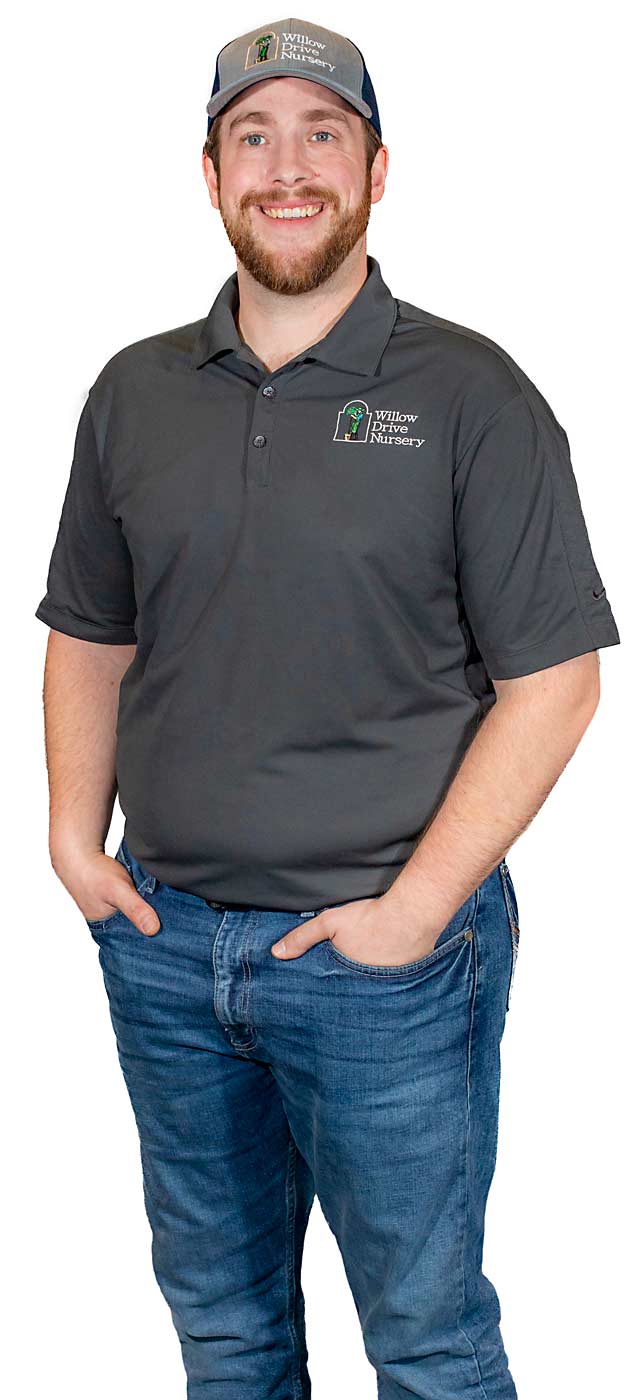family background/Tyson is a first-generation farmer from Anacortes, Washington, who graduated from Edmonds Community College with a degree in nursery and greenhouse management. He is the son of Rick and Tee McCallum.
age/32
grower/Ephrata, Washington
crops/Apples and cherries
business/Willow Drive Nursery

How did you find your way into agriculture?
I grew up over in Anacortes, a gateway to the Strait of Juan de Fuca. It’s more of a fishing community with some agriculture in Skagit County. For me, when I was growing up, I would tell others that I wanted to move to Eastern Washington, and the consensus response was, “What are you going to do over there to make a living?” I really wanted to move out to Eastern Washington, but I didn’t know what to do. I found Edmonds Community College had one of the few horticulture programs for community colleges in Western Washington.
So, at 27 years old, I decided to go back to school to learn horticulture, and that helped me find my way back here. Overall, choosing ag school was on a whim, and I planned to get a job while going to school. One week into my classes, I felt the need to get a job at a nursery, to learn something about plants and to get a baseline on knowledge.
What was your first experiences like?
I found an opportunity at an ornamental nursery in Snohomish, and I did a little bit of everything for them — enough to the point where I felt I could operate a tractor or be on a production crew at a greenhouse.
I also learned how to manage their pest program. Anything that needed addressing, pest-wise, was pretty much my duty for the better half of a year, and it served as part of my college internship as well.
That work experience helped me build a foundation to move into the ag world. It’s been a whirlwind of an adventure getting to where I am today.
What was the job search like after school?
After I graduated, I was dropping resumes at several places, such as a retail nursery and a seed company, and I thought about applying for outside sales jobs where I can meet farmers and make relationships with orchardists.
On that trip, I remember driving down the road, and Willow Drive Nursery came up on Google Maps. I stopped into their office, and I talked with them about doing outside sales. Coincidentally, they were looking for help in that department — so I left there on a high, feeling like I couldn’t believe that just happened. Two weeks later, they scheduled an interview with me, and I was offered the job.
My first two days of work at Willow Drive was the 2019 Hort Show, and it was about as intimidating as anything I’ve ever experienced. At that time, I remember knowing what rootstocks were, but I couldn’t name a single one.
For the better half of my first year, working in tree fruit was like drinking from a fire hose. Now I’m much more comfortable talking anything fruit with most people. I don’t know it all, but it’s been great learning from people who’ve been working in the industry for a long time.
Those experiences and factoids have been invaluable for me to get experience — it’s something you don’t necessarily find in a textbook or online.
What do you find rewarding about working in ag?
For the most part, you need to dive into it and figure out if you like working with plants. My title is sales and business development, but if I could spend all day tucked into a tree, pruning, I would. Pruning is a pretty simple thing to say is what hooked me, but it was that hands-on experience in my first ag job, watching how things grow, that was the most rewarding first experience.
That part of the industry is something that I fell in love with, and it helped me feel comfortable in what I was doing, to the point that I could do this for the rest of my life.
I spent a lot of my early jobs coming home at the end of the day with no sense of satisfaction and questioning whether what I did that day was important. In that first ag job, I got to see plants that I potted up turn into mature plants and watch them go off the table to become something that lasts. Overall, if you want to work in ag, get involved — and if you don’t enjoy what you’re doing, there are more than 50 other ag jobs you can try to find something you like.






Leave A Comment